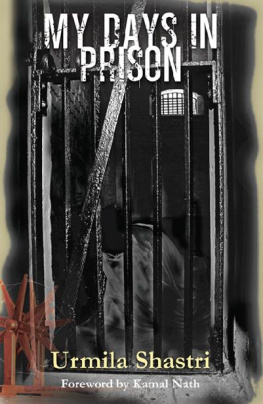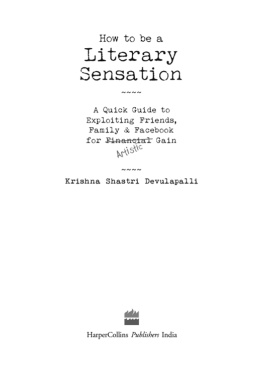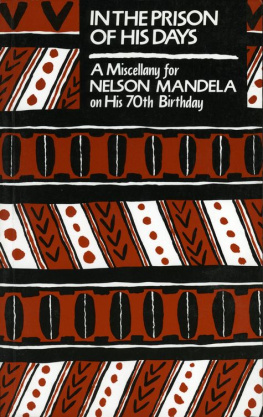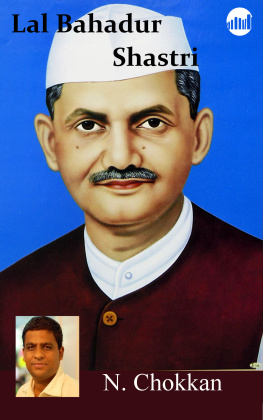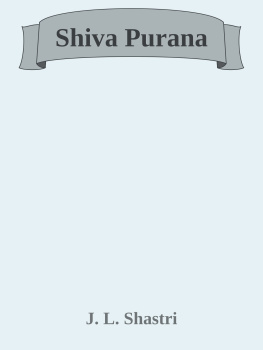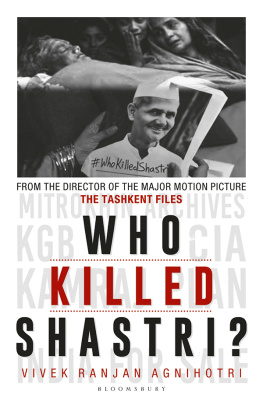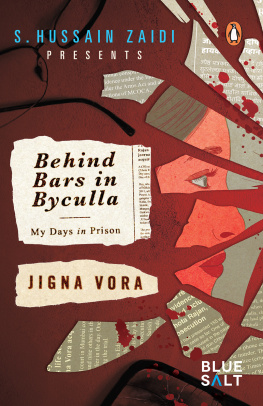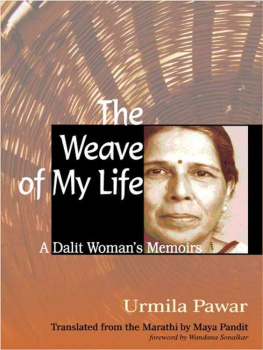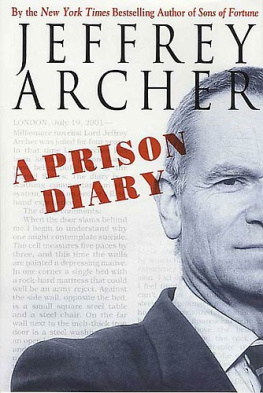My Days in Prison
(Kaaragaar)
U RMILA S HASTRI
Translated from the Hindi by
Sonal Parmar
With an introduction by
Kasturba Gandhi
Contents
Freedom at Midnight
Any Indian who lived through that era will recall the Tryst with Destiny speech by Jawaharlal Nehru on August 14, 1947 as one of the greatest speeches ever made. Truly inspirational, it has the ability to move us even now, 65 years later.
Many of us do not realize that this freedom at midnight marked the end of a long period of slavery which had commenced at the Battle of Plassey over two centuries ago in 1757. This was the first time since then that India had won the battle for freedom.
Foreign nationals and armies had come to India throughout its recorded history from as early as 7 th century B.C. For the most part, the newcomers, who cannot be termed as invaders stayed back to be absorbed by Bharatvarsh. The battle of Plassey was the first time a foreign power arrived in the disguise of a trading company and began ruling a part of India, only to extend its rule gradually to most of the subcontinent. Indian maharajas were permitted to rule their states as long as they owed allegiance to the British Crown. Their good behaviour was watched over by a British Resident.
The attempt at freedom in 1857, which is called the First War of Independence by Indians and the Sepoy Mutiny by the British was easily quelled as described by a contemporary British administrator. Other attempts at winning freedom through armed rebellion met similar fate.
Mohandas Karamchand Gandhi created the route for Civil Disobedience, first by breaking the Salt Law at the Dandi March, and later by boycotting British goods. Millions of Indian heeded his call, some in spirit, others by action. They bought British goods and then burned them publically, exhorting others to follow suit.
The author of Karaagar was one such woman who was a sincere follower of Mahatma Gandhi. She was arrested in Meerut for boycotting British liquor and goods and put to trial during which the British magistrate asked her to apologize so that he could acquit her. She chose to go to jail instead for six months. What she wrote of her jail days in this slim work brings that era alive to us today.
The name Gandhi has been a symbol of strength and stability for governance in India since 1947. No matter which political party rules the country, the foundations of stability laid by Gandhi-ji shall forever remain strong. The message of his inspiration continues to guide India.
Urmila Shastri went to jail again in the Quit India Movement of 1942, once again on a call by Mahatma Gandhi. This time she fell seriously ill and was denied proper treatment. She was released after serving her sentence. She died with a smile on her face. Her ideals and principles have been a source of inspiration to me, and even though she is no more, she continues to be a guiding light in my life.
The reprint of this book written by Urmila Shastri in 1930 will remind us of many who joined the march to that Tryst with Destiny.
Kamal Nath
Union Cabinet Minister for Urban Development
I congratulate Urmiladevi Shastri on writing this beautiful book about her experiences in prison. After getting married she came to Meerut with the great hope of setting up a home with her husband. However, she soon left the bliss of her new life for the sake of her motherland, accepting to go to jail with a smile on her face. In this war for freedom, our other sisters across India made similar sacrifices; they did womankind proud by displaying exemplary patriotism.
This book will be reminiscent of life in a jail to our sisters who have been there. Those sisters who unlike Urmila did not have the good fortune of going to jail will feel a certain envy on reading this book. I know that those saffron sari-clad women who peacefully boycotted British goods and picketed liquor shops havent suffered any less for being brave. These patriots have suffered such miseries that make the prison atrocities pale in comparison; I have been witness to those days.
Urmila has written this book in such simple Hindi and lucid style that I did not face any difficulty in reading it. So, I congratulate her again specially for that.
Kasturibai Gandhi
Satyagrahashram
Sabarmati
It was the sixteenth of July, 1930. I was making preparations to go to Kashmir. In those days, my companions in the Congress Committee at Meerut were participating in the Satyagraha movement in large numbers. It was only after working with them continuously for four months that I was finally able to take a two-month break from the demands of my post. With a heart filled with enthusiasm I imagined my beloved Kashmir, its spellbinding beauty floating before my eyes. Unable to wait any more than I absolutely had to, I had already worked out the details of my forthcoming holiday. Suddenly, I heard voices from the street Professor Pyarelal Sharma has been arrested!
Sharmaji was one of the most respected leaders of Meerut. I was in a bind: considering the new circumstances, what would be the best thing for me to do? On the one hand was the desire to meet my family, my brothers and sisters, to relax and laze around, with the cool, soothing breeze of the valley caressing my face; on the other was the prospect of hard work in the blazing sun, labour that was most likely to culminate in prison. Unable to decide, I closed my eyes in an attempt to achieve greater clarity of thought. It didnt work. I couldnt make up my mind. Just then, even as I was in the throes of my dilemma, Professorji, my husband, entered the room. So Urmila, have you made your decision yet? he asked me. Think carefully. You have to make a choice. Between duty and peaceful rest, between country and family. Which will it be? The way the question had been framed, something in the manner in which it had been put to me, tugged at my soul. The sense of responsibility triumphed over the desire for domestic indulgence, and my decision in response to the call of duty was made.
At around 4 p.m., I was lying in my room. Professorji was sitting next to me, engrossed in a newspaper he was reading. Suddenly a thought came to me. Lets go get ourselves photographed, I suggested excitedly. He looked at me in surprise at the complete unexpectedness of the wish expressed, but recovering quickly answered in the affirmative. Certainly, he said. If you want to go immediately we could go to Sadar. A very famous photographer named Mr Mehmood has a studio there.
I asked for an appointment with him. A servant was sent to find out what time would be suitable for us to go over. We were asked to come right away.
I got dressed and soon we were on our way. As soon as I got on to the tonga, I saw Shanta walking towards our house. Shanta was one of the members of the Womens Satyagrahi Committee and a friend. I could see a notice detailing the boycott of foreign goods in her hand. Coming up to the tonga she asked, So, where are you off to, all dressed up? Laughing, I replied, To the end of the earth. Want to come along? Shanta smiled in response and got on to the tonga.
Mr Mehmood had been waiting for us. Three photographs were clicked. As we were returning we crossed three lorries full of policemen near the police station, with the DSPs car parked in front of them. It looks like the volunteers picketing liquor shops in Sadar are going to be arrested, Professorji said. As if coming to life at his words, the lorries rolled on towards the marketplace. Looking at me with concern, my husband said, Urmila, tomorrow it will be your turn.


